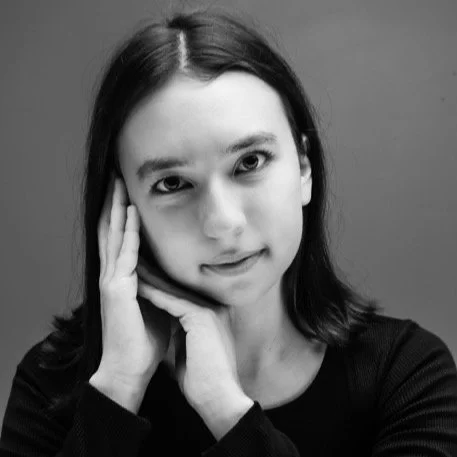Dive into this collection that illuminates the rich tapestry of Palestinian history and culture.
An aerial view of Palestine. CC0
Curated with a respect for the multifaceted narratives of the region, this collection encapsulates an array of perspectives, histories and lived experiences. Each title delves deep into the heart of Palestinian identity, the intricacies of the conflict and the resilient spirit of a people striving for justice and peace.
NON-FICTION
1. They Called Me a Lioness
by Ahed Tamimi and Dena Takruri
Ahed Tamimi, an iconic Palestinian activist, garnered global attention for her fearless activism against the Israeli occupation. Her imprisonment as a teenager after confronting an Israeli soldier in her village of Nabi Saleh turned her into a symbol of Palestinian resistance. This compelling memoir offers a firsthand account of Tamini’s experiences and the ongoing struggle for justice in Palestine, providing profound insight into the realities Palestinians face under occupation.
2. The Ethnic Cleansing of Palestine
by Ilan Pappé
In this seminal work, Ilan Pappé meticulously traces the events of the 1948 Palestinian exodus, revealing the hidden reality of forced displacement and the establishment of Israel. With unflinching detail, Pappé unearths harrowing stories of dispossession and illuminates the profound impact of this historical upheaval on the Palestinian people.
3. Love Is an Ex-Country
by Randa Jarrar
In her memoir, Randa Jarrar fearlessly challenges stereotypes about Muslims and Palestinians. Embarking on a cross-country journey, Jarrar proudly embraces her queer, Muslim, Palestinian and unapologetically confident identity, offering a raw, authentic exploration of the intricacies of life.
4. The Iron Cage: The Story of the Palestinian Struggle for Statehood
by Rashid Khalidi
Historian Rashid Khalidi masterfully dissects the intricate history of Palestinian nationalism and aspirations for statehood. With scholarly precision, Khalidi navigates through decades of political intrigue, chronicling the challenges, setbacks and enduring resilience of a people bent on self-determination and recognition on the world stage.
5. The Hundred Years' War on Palestine
by Rashid Khalidi
Rashid Khalidi's meticulously researched book paints a vivid historical tapestry from the 1800s to the present in this unshrinking account of the assault on Palestinian society.
6. We Are Not Here to Be Bystanders
by Linda Sarsour
Linda Sarsour's memoir portrays her journey from Brooklyn to becoming a powerhouse in activism, stirring profound reflections on solidarity and advocacy.
7. Except for Palestine
by Marc Lamont Hill and Mitchell Plitnick
Marc Lamont Hill and Mitchell Plitnick's critique navigates the inconsistencies within progressive circles, urging universal consistency in advocating for all oppressed communities.
FICTION
1. Mornings in Jenin
by Susan Abulhawa
Susan Abulhawa crafts a poignant, multigenerational narrative that traverses the emotional terrain of a Palestinian family's journey through displacement and loss. Through exquisite storytelling, Abulhawa offers a deeply moving portrayal of resilience amid a tumultuous landscape of conflict and highlights the enduring spirit of the Palestinian people.
2. The Tiny Journalist: Poems
by Naomi Shihab Nye
Naomi Shihab Nye, the esteemed Palestinian-American poet, weaves poetic wonders inspired by Janna Jihad Ayyad, Palestine's youngest journalist. Ayyad, capturing anti-occupation protests at the age of seven using her mom's smartphone, becomes Nye's muse in this must-read collection.
3. You Exist Too Much
by Zaina Arafat
Zaina Arafat's debut novel is a transcontinental tale which oscillates between the United States and the Middle East. A fresh voice in Palestinian-American literature, Arafat artfully dismantles Israel’s pinkwashing while unraveling the complexities of Palestinian society for diverse readers.
4. Enter Ghost
by Isabella Hammad
Isabella Hammad's evocative narrative navigates modern-day Palestine, delving into the artist's struggles amid diaspora, displacement, and the shadow of occupation.
5. Evil Eye
by Etaf Rum
Etaf Rum's exploration of womanhood as a Palestinian American is a profound journey through intergenerational trauma, clashes of culture and labyrinthian family dynamics.
6. Salt House
by Hala Alyan
Set in the aftermath of Israel’s conquest of the West Bank and Gaza in the 1967 Six-Day War, "Salt Houses" chronicles a Palestinian family's odyssey from their homeland to Kuwait, painting a poignant legacy of longing and displacement passed through generations.
7. Mother of Strangers
by Suad Amiry
"Mother of Strangers" presents a cinematic love story against the backdrop of the Nakba in Jaffa, weaving themes of love, loss, and a nation's upheaval.
Raeann Mason
Raeann is a traveler, digital storyteller, and guide writer, with a degree in Mass Communication & Media from the Walter Cronkite School of Journalism. She is passionate about a/effective journalism and cultural exchange, and is an advocate of international solidarity and people's liberation. Her work at CATALYST PLANET focuses on reshaping the culture of travel and hospitality to be more ethically sound and sustainable






